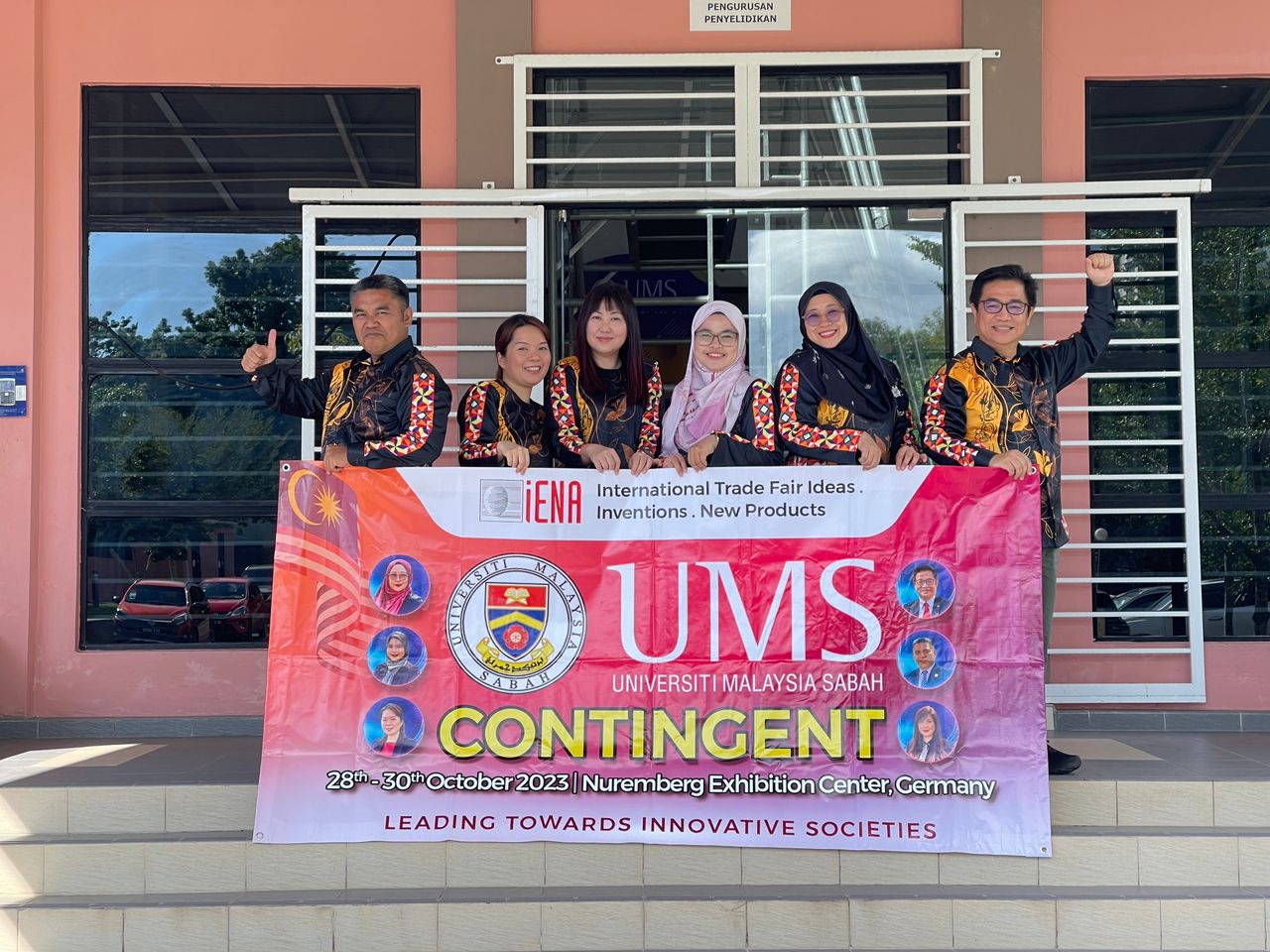 Universiti Malaysia Sabah (UMS) is set to make a global impact at the upcoming International Trade Fairs, Ideas, Inventions, and New Products 2023 in Nuremberg, Germany, from October 28th to 31st.
Universiti Malaysia Sabah (UMS) is set to make a global impact at the upcoming International Trade Fairs, Ideas, Inventions, and New Products 2023 in Nuremberg, Germany, from October 28th to 31st.
Guided by the Deputy Vice Chancellor (Research and Innovation), Professor Ir. Dr. Rosalam Hj. Sarbatly, this delegation of six brilliant minds is poised to captivate attendees and industry experts with a diverse range of innovative solutions, covering sustainable energy, agriculture, education, and beyond.
Leading the charge is Integrated Solar Dryer (INSOLER), an innovative system by Associate Professor Dr. Jidon Janaun, designed to promote sustainable agriculture by enhancing the drying of agricultural produce and reducing food wastage.
Another standout innovation is the Residual Oil Extractor (ROE), championing eco-friendly waste oil recovery and waste reduction. Dr. Jidon Janaun is at the helm of this remarkable project.
Dr. Rovina Kobun leads the development of two ground-breaking innovations: Agrowaste Biosorbent, offering sustainable agricultural waste management and serving as an effective biosorbent, thus contributing significantly to environmental protection, and Oi-Life, an ingenious invention with applications in the healthcare sector, focusing on improving the quality and shelf-life of fruits and vegetables.
Serunding Kubis, a culinary innovation crafted by Associate Professor Dr. Jurry Foo, offers a delightful twist on traditional Sabahan cuisine.
Dr. Jurry Foo also brings forth the TagaLit: Tagal Literacy Model, a pioneering educational approach aimed at nurturing literacy and fostering community engagement within Sabahan's Tagal indigenous communities.
Dr. Jinky Jane C Simeon's Sompoton Video Assisted Learning (VAL) Kit promises to transform musical experiences with an immersive video-based learning approach.
She also introduces Jom Gamifykids, a pioneering gaming solution with the potential to revolutionize how children learn and interact with technology.
Dr. Affendy Hassan's Smallfarm Fertiliser Spreader (SFS) is set to boost the efficiency of small-scale farmers by optimizing the distribution of fertilizers.
SFS addresses labour shortages, particularly in rubber, oil palm, and other crops, while simultaneously reducing costs and enhancing the effectiveness of fertilizer application in small-scale farming.
While Dr. Esther Jawing's UMS Transformation Modules for Young Inmates offer a fresh approach to inmates’ rehabilitation and skill development, promising transformative opportunities within the correctional system.
UMS's enthusiastic engagement in this esteemed international event not only emphasizes its commitment to nurturing innovation but also spotlights Sabah's emerging prominence as a hub for pioneering solutions.
These extraordinary inventions harbour the potential to wield a substantial influence across a spectrum of sectors, spanning agriculture, education, healthcare, and sustainability.
The UMS delegation, ready to join a diverse global community of inventors, entrepreneurs, and visionaries at the International Trade Fairs, Ideas, Inventions, and New Products 2023, seizes a unique opportunity to showcase their innovations, cultivate international collaborations, and gather invaluable insights into the global market.
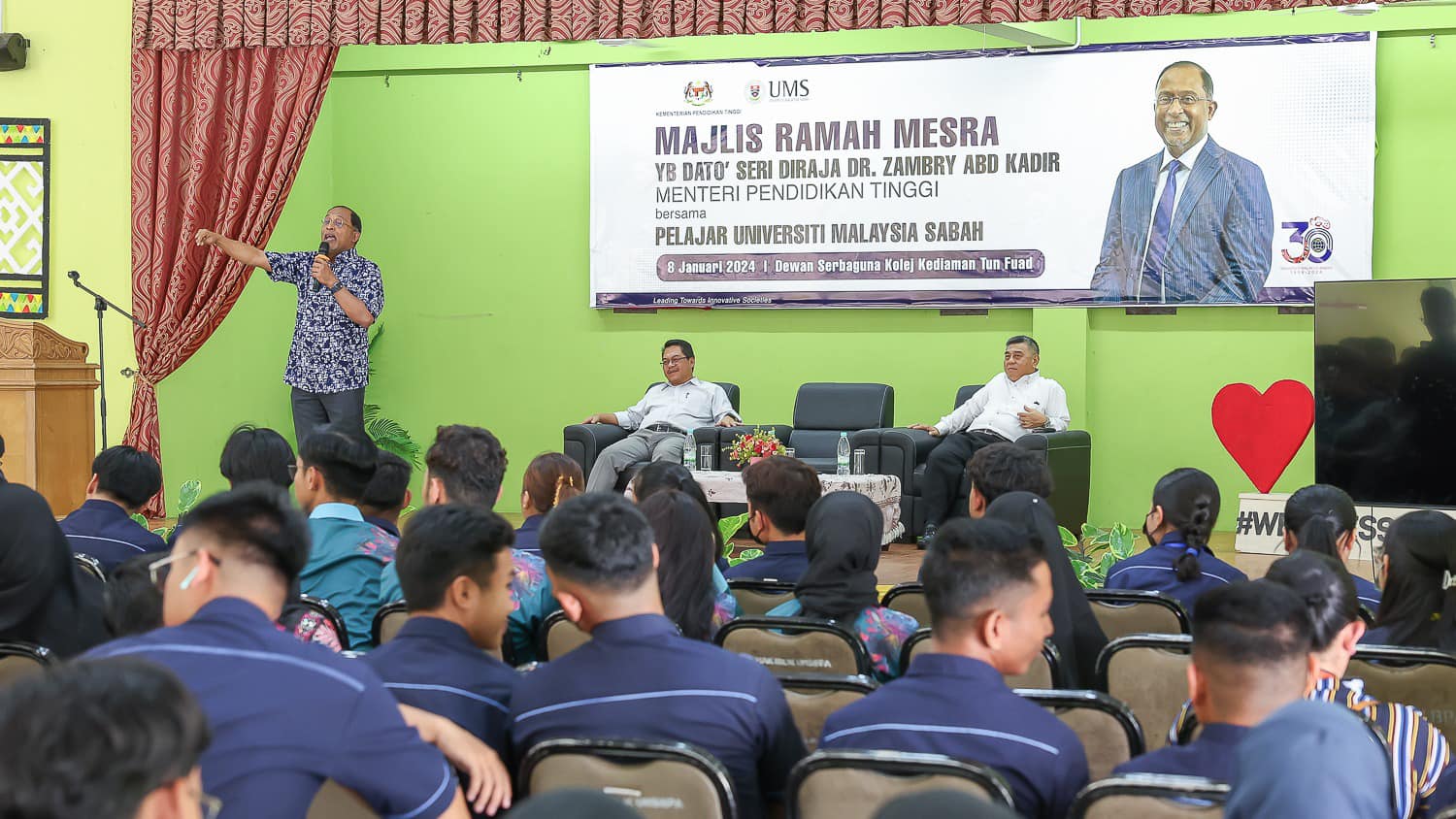 The Ministry of Higher Education has announced that an additional allocation of RM2 million will be provided to address the water problems at the main campus of Universiti Malaysia Sabah (UMS), here.
The Ministry of Higher Education has announced that an additional allocation of RM2 million will be provided to address the water problems at the main campus of Universiti Malaysia Sabah (UMS), here.


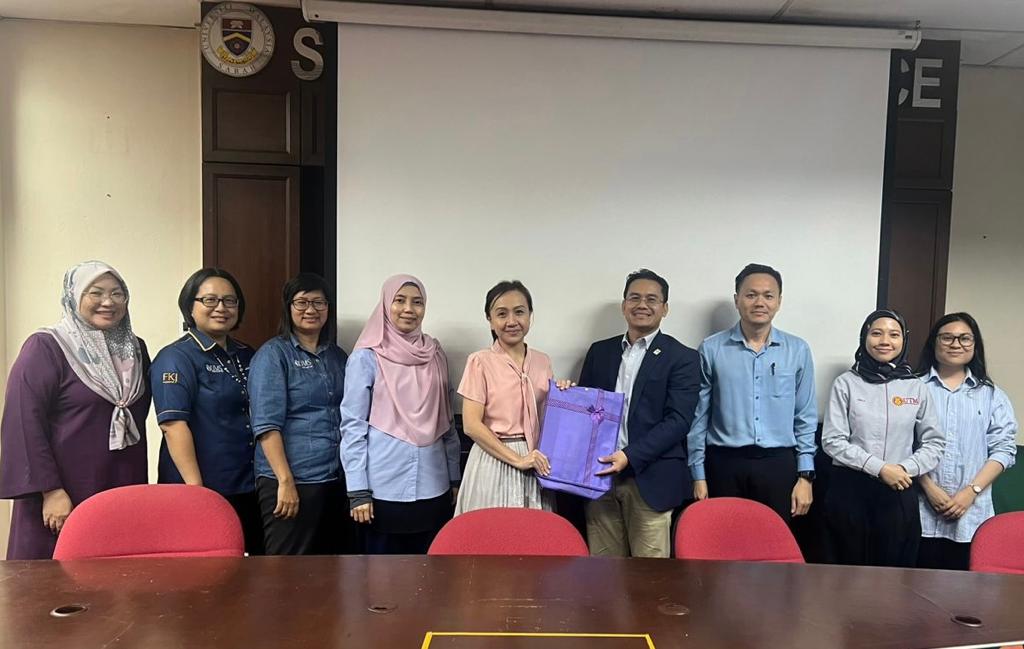 Pusat Kajian Bencana Alam (NDRC), Fakulti Sains dan Sumber Alam (FSSA), Universiti Malaysia Sabah (UMS) telah menerima kunjungan hormat daripada pihak Disaster Preparedness and Prevention Center (DPPC), Malaysia-Japan International Institute of Technology (MJIIT), Universiti Teknologi Malaysia Kuala Lumpur (UTMKL), baru-baru ini.
Pusat Kajian Bencana Alam (NDRC), Fakulti Sains dan Sumber Alam (FSSA), Universiti Malaysia Sabah (UMS) telah menerima kunjungan hormat daripada pihak Disaster Preparedness and Prevention Center (DPPC), Malaysia-Japan International Institute of Technology (MJIIT), Universiti Teknologi Malaysia Kuala Lumpur (UTMKL), baru-baru ini.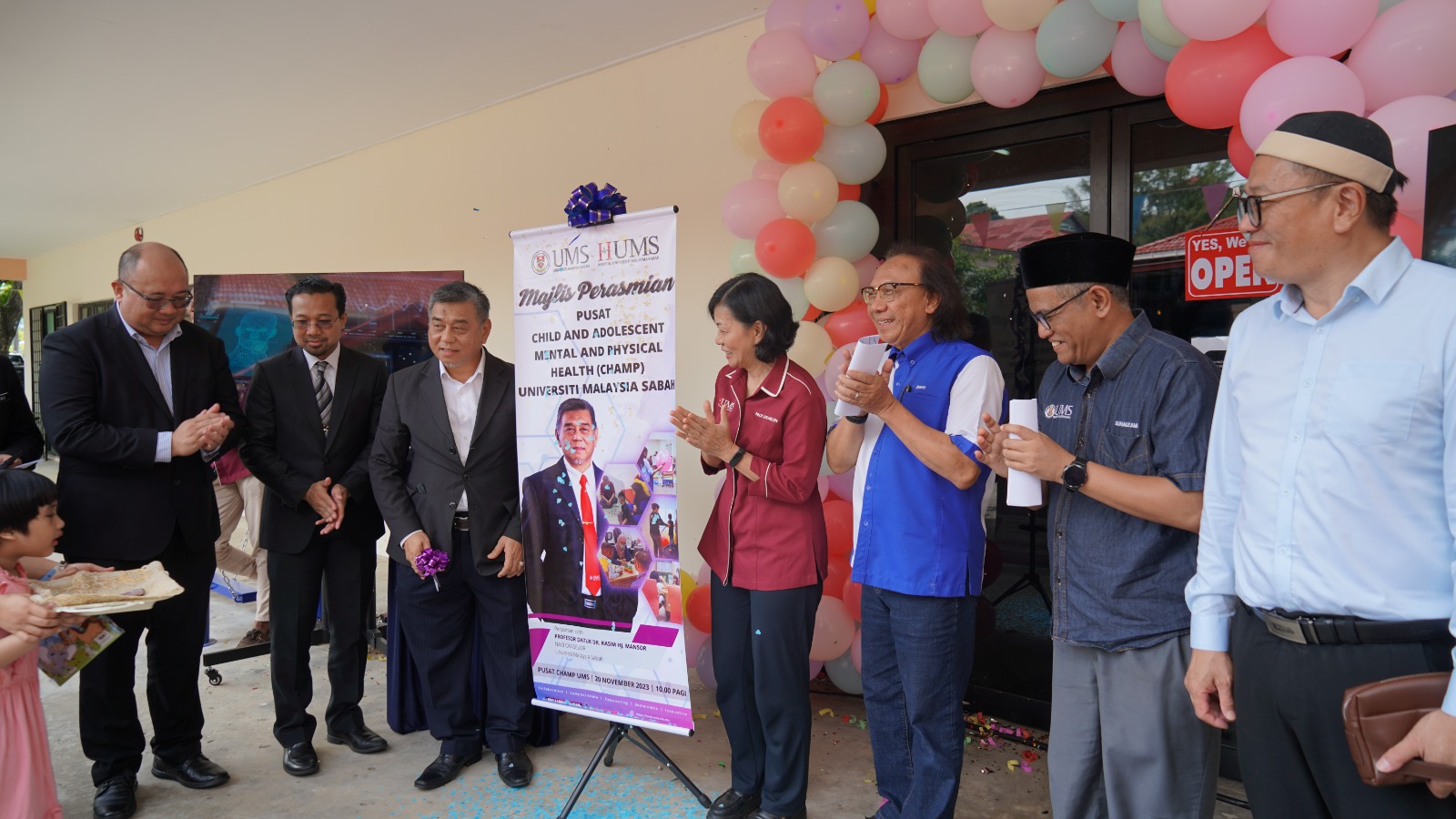 Universiti Malaysia Sabah Hospital established a Child and Adolescent Mental and Physical Health (Champ) Centre.
Universiti Malaysia Sabah Hospital established a Child and Adolescent Mental and Physical Health (Champ) Centre.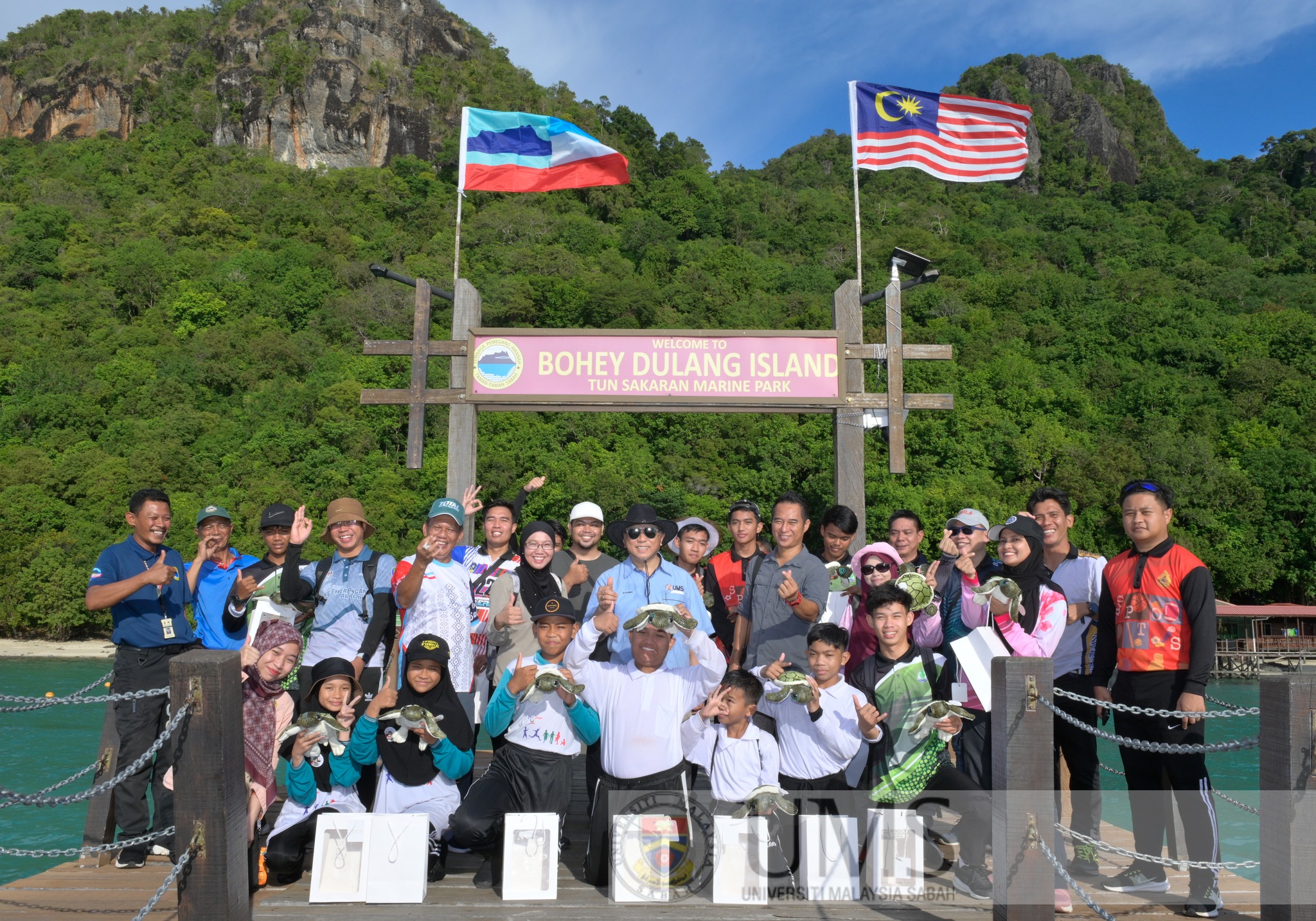
 Universiti Malaysia Sabah (UMS) is set to make a global impact at the upcoming International Trade Fairs, Ideas, Inventions, and New Products 2023 in Nuremberg, Germany, from October 28th to 31st.
Universiti Malaysia Sabah (UMS) is set to make a global impact at the upcoming International Trade Fairs, Ideas, Inventions, and New Products 2023 in Nuremberg, Germany, from October 28th to 31st.